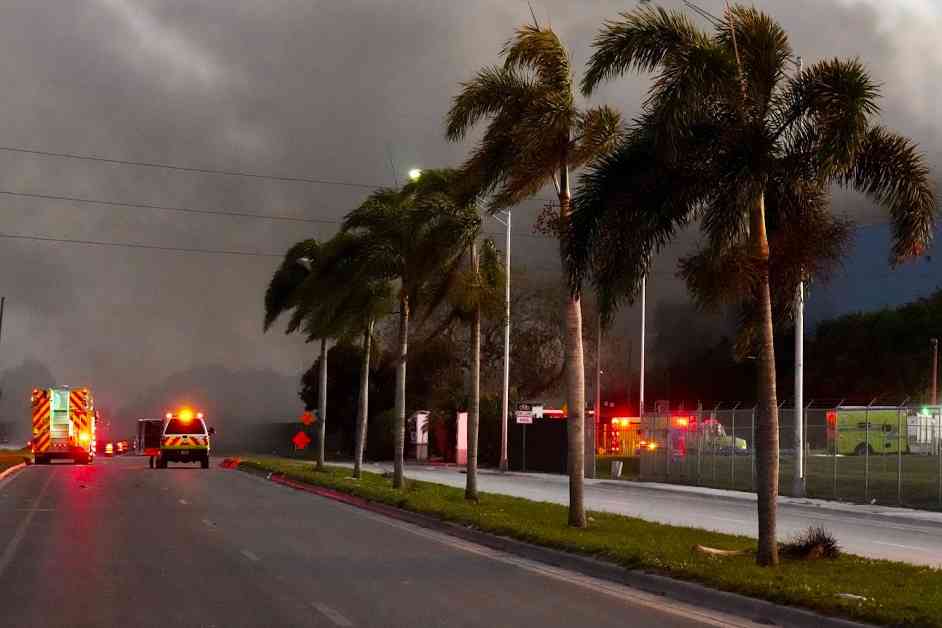Residents Rally Against Incinerator Plans in South Florida
Residents of Miramar, Florida, made their voices heard loud and clear at a recent meeting of Miami-Dade County officials. Clad in green T-shirts emblazoned with the words “MIRAMAR SAYS NO TO INCINERATOR,” these residents gathered in protest against plans to build the nation’s largest trash incinerator near their homes. The proposed facility, capable of burning up to 4,000 tons of garbage a day, has sparked fears among the local community about potential health and environmental risks.
The meeting, which took place in September, saw an overflow of concerned citizens at the government center, with some attendees forced to watch the proceedings from the building’s atrium due to limited seating. The contentious issue has pitted residents against county leaders in a debate over the location of the incinerator, highlighting broader concerns about environmental justice and racial equality.
Environmental Justice at the Forefront
Elisha Moultrie, a 30-year resident of Miramar and committee leader with the Miami-Dade NAACP, addressed county commissioners, emphasizing the historical injustices faced by communities of color when it comes to the siting of industrial facilities. Moultrie’s impassioned plea underscored the broader national trend advocating for a clean and healthy environment for all, especially in low-wealth and minority communities.
Mike Ewall, director of Energy Justice Network, echoed these sentiments, pointing out the disproportionate impact of incinerators on communities of color. Despite the majority of incinerators being located in predominantly white areas, those situated in communities of color tend to burn more trash and emit higher levels of pollutants, exacerbating health risks for residents.
Health Concerns and Political Challenges
Cheryl Holder, an internal medicine physician, shared her personal experience of living near an incinerator in Miami-Dade County. She recounted how pollution from the facility affected her family’s health, with her son developing asthma as a result. Holder’s story highlights the real-world consequences of environmental hazards on individuals and families residing in close proximity to industrial sites.
As Miami-Dade officials grapple with the decision of where to place the new incinerator, tensions have escalated among residents, city officials, and advocacy groups. The intersection of politics, public health, and environmental concerns underscores the complex nature of waste management and the need for equitable solutions that prioritize community well-being.
A Call for Environmental Equity
The debate over trash incinerators in South Florida reflects a broader national dialogue on environmental justice and the equitable distribution of environmental burdens. As communities push back against the encroachment of polluting industries on their neighborhoods, the need for sustainable waste management practices becomes increasingly urgent.
While the future of Miami-Dade’s incinerator remains uncertain, the voices of residents like Elisha Moultrie, Cheryl Holder, and countless others serve as a reminder of the human impact at the heart of environmental policy decisions. As stakeholders navigate the intricate web of political, economic, and environmental factors at play, the imperative of addressing historical injustices and promoting environmental equity remains paramount.

















